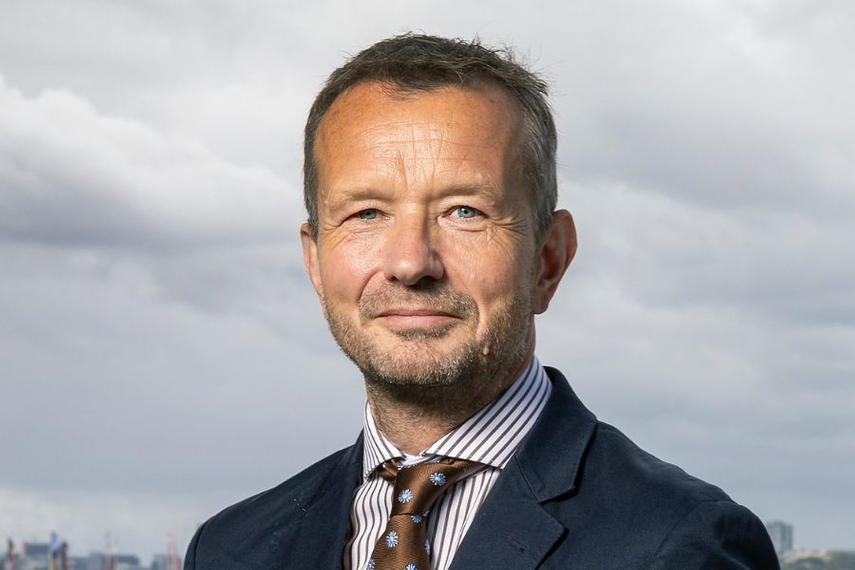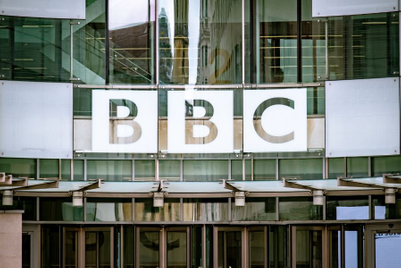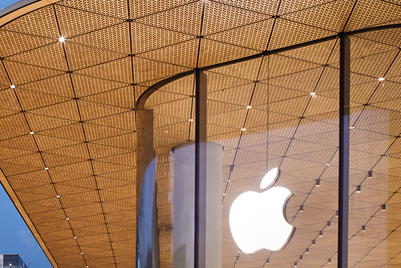
Impartiality, once the bedrock of credible journalism, now stands at a crossroads. In today’s polarised world, where audiences are increasingly drawn to narratives that align with their values, the principle of neutrality has become harder to defend. Traditional media outlets, once trusted arbiters of public discourse, face a dual crisis: Dwindling trust and the disruptive influence of digital platforms that reward engagement over accuracy. The stakes could not be higher. As trust erodes and opinion dominates, impartiality is being re-examined—not just as an ethical ideal, but as a viable strategy for navigating this fraught landscape.
The 2024 Edelman Trust Barometer paints a sobering picture: Global trust in media stands at just 50%, making it the least-trusted institution among businesses, NGOs, and government. Distrust is particularly pronounced in key markets such as the US (39%), Japan (33%), and the UK (31%). This decline in trust is compounded by the increasing role of social media platforms, which often prioritise engagement over accuracy, further blurring the lines between news and opinion.
Even legacy organisations such as BBC too finds itself navigating this increasingly complex media landscape. To understand how the BBC is responding to these challenges, Campaign speaks with Jonathan Munro, global director and deputy CEO of BBC News and Current Affairs. Just over a year since Campaign's last conversation, Munro offers insight into the organisation’s efforts to navigate political polarisation, its recent talent loss, and how it's adapting to geopolitical complexities.
Campaign: There seems to be growing public pressure for news organisations to take a stand on political issues. How does the BBC handle that?
Munro: Newspapers the world over have the freedom to endorse a candidate or a policy and take a partisan view if they choose to. The fact that we don’t take such positions is actually a freedom for us. We are impartial. We don’t back any partisan cause—whether it’s left, right, or centrist—that’s not our game. We’re about the pursuit of truth and the enrichment of knowledge, and you can only pursue the truth from an impartial perspective. Our job is not to tell people who to vote for or what to think. Our job is to provide people with the information they need to make those decisions for themselves. Of course, we make value judgements all the time about how our news is presented in different markets, whether that’s in the US, the UK, or here in Asia. But those judgements are always rooted in impartiality.
Given the US election and the wider global context of how media played out during that period, how do you see press freedom and disinformation evolving in today’s political climate?
Free press and accurate press are not the same thing, but a free press gives you the freedom to be inaccurate. That’s absolutely the opposite of what we aim to be. We strive for accuracy in all things, and that’s part of the responsibility of being a public service broadcaster and adhering to the values that come with it. Free media is an essential building block of accountability, and accountability, in turn, is a building block of democracy. Of course, we operate in environments around the world, and not all of them are democratic. Democratic values—ones many of us have grown up with—are not universally available. In places where the political environment isn’t democratic, it’s still our job to shed light on what the government of that country is doing: what they’re saying that’s wrong, and what they’re saying that’s right.
On this point, you’re no longer just competing with other news outlets—you’re up against social media and user-generated content. With misinformation rife and many people actively avoiding traditional media, how does that impact your business model?
Media consumption is more fragmented now than it’s ever been, and that’s a trend we expect to continue. There are so many more media sources available today, and not all of them are values-based or focused on accuracy. On one hand, this makes the case for the BBC even stronger—our history and values set us apart. On the other hand, it makes breaking into certain markets more challenging because the media landscape has become so crowded.
Still, we’re reaching nearly 450 million people a week. I was recently in Nigeria, and while travelling, I read a book by a man who fought in the Nigerian Civil War during the 1960s. He wrote about how he followed events in his own country through the BBC. Stories like that show how deeply our reporting has mattered and continues to matter to people. At the same time, we’re adapting. We’ve expanded into newer language services—we now operate in 42 languages—and we’re exploring how artificial intelligence could help us grow those services even further. Innovation is critical to ensuring we stay relevant and continue to serve audiences around the world.
Do you agree with the sentiment that news organisations are becoming obsolete?
I don’t agree with that at all. There are worrying trends in the way news is delivered to certain consumers, particularly younger audiences. Big social-media platforms adjust their algorithms to prioritise what suits them commercially, and often that means moving away from delivering news in their algorithmic patterns. That’s a shame—it’s a worrying trend. But we have to approach it with determination, using the tools available to us to grow in the markets where we can make an impact. We also need to leverage technology to reach more consumers, particularly younger audiences, because they haven’t grown up in a world where traditional media had, almost, a quasi-right to exist. That’s no longer the case, so we have to work harder to demonstrate our value to them.
What are your thoughts on X and what seems to be currently, the biggest unverified news organisation in the world?
I think it's important that people know that content on X is not verified or impartial. Social-media platforms are a good and invigorating thing for many, many people, and we ourselves, through BBC accounts, use all sorts of social media accounts to reach audiences around the world, but no social media platform has ever been invented with a mission to be impartial. And again, what that does is it opens up an opportunity for the BBC to say that we're different. We are not simply a place where opinions are exchanged, we're a place where opinions are aired, but they're also scrutinised and facts are put into the conversation, and then audiences can make their own mind up.
Last year, it was announced that the BBC is cutting 155 roles while creating 55 new ones, some of which will affect APAC operations including Australia. To what extent are these changes driven by AI or technology, and to what extent are they about achieving savings and efficiencies?
The changes we announced are not driven by AI. Technology has always caused shape-shifting in news organisations, but these changes are the result of a completely different issue. The roles affected by the proposals are licence fee-funded in the UK. The previous government froze the licence fee for two years, and in the third year, it was uprated at a rate lower than inflation. Essentially, we experienced an income freeze for two and a half years, at a time when inflation in the UK was hitting double digits. In Sydney, however, we are investing because we believe one of the ways to serve global audiences more effectively is to adopt a ‘follow the sun’ approach. We operate across a 24-hour news cycle, passing responsibility from London to Singapore, then Sydney, Washington, and back to London. While London remains our headquarters, we need to be awake and active when our global audiences are awake.
Turning briefly to India, the operations there seem to have changed significantly following the raid on the BBC offices and changes in foreign media ownership laws. How has this affected your strategy in India?
India is a critical market for us, and despite the challenges, we’ve managed to adapt. We’ve made changes to comply with Indian law, maintaining six language services after four staff left to set up an independent production company. It hasn’t been easy, but we’re committed to serving Indian audiences with the same editorial independence they expect from us. The turbulence we’ve had there would not stop us serving the people of India, and we’re working hard to normalise relations with local stakeholders while ensuring compliance with regulations.
How does the situation in China compare? Have your operations there changed, and how challenging is it to work within the current climate, especially with the crackdown on foreign companies?
Our operation in China is much smaller than in India. If you combine the BBC’s India team with the independent company we work with, we’re talking about nearly 300 people. In China, it’s in the single digits—a very small operation. I’ve been to Beijing myself to meet with the Foreign Ministry and discuss visas. We’d like more visas to increase our coverage in China. We still want more people based there and would welcome any steps in that direction. However, our bigger concern isn’t so much within China but rather the global influence of Chinese state media. Alongside Russian, Iranian, and Turkish media, Chinese state outlets have aggressively expanded their presence globally. For example, China is particularly influential in Sub-Saharan Africa, while Russia dominates in the Middle East and Eastern Europe. What these outlets produce doesn’t align with the BBC’s values—they are not impartial.
But what would truly make us feel welcome [in China] is receiving a significant number of additional visas so we can expand our presence. China is a driving force in global trade, economics, business, innovation, technology, and increasingly, diplomacy. Understanding and covering China is a key part of the mission we would like to fulfil.



.jpg&h=334&w=500&q=100&v=20250320&c=1)


.jpg&h=334&w=500&q=100&v=20250320&c=1)
.jpg&h=334&w=500&q=100&v=20250320&c=1)

.png&h=334&w=500&q=100&v=20250320&c=1)


.jpg&h=268&w=401&q=100&v=20250320&c=1)

.jpg&h=268&w=401&q=100&v=20250320&c=1)



.jpg&h=268&w=401&q=100&v=20250320&c=1)
